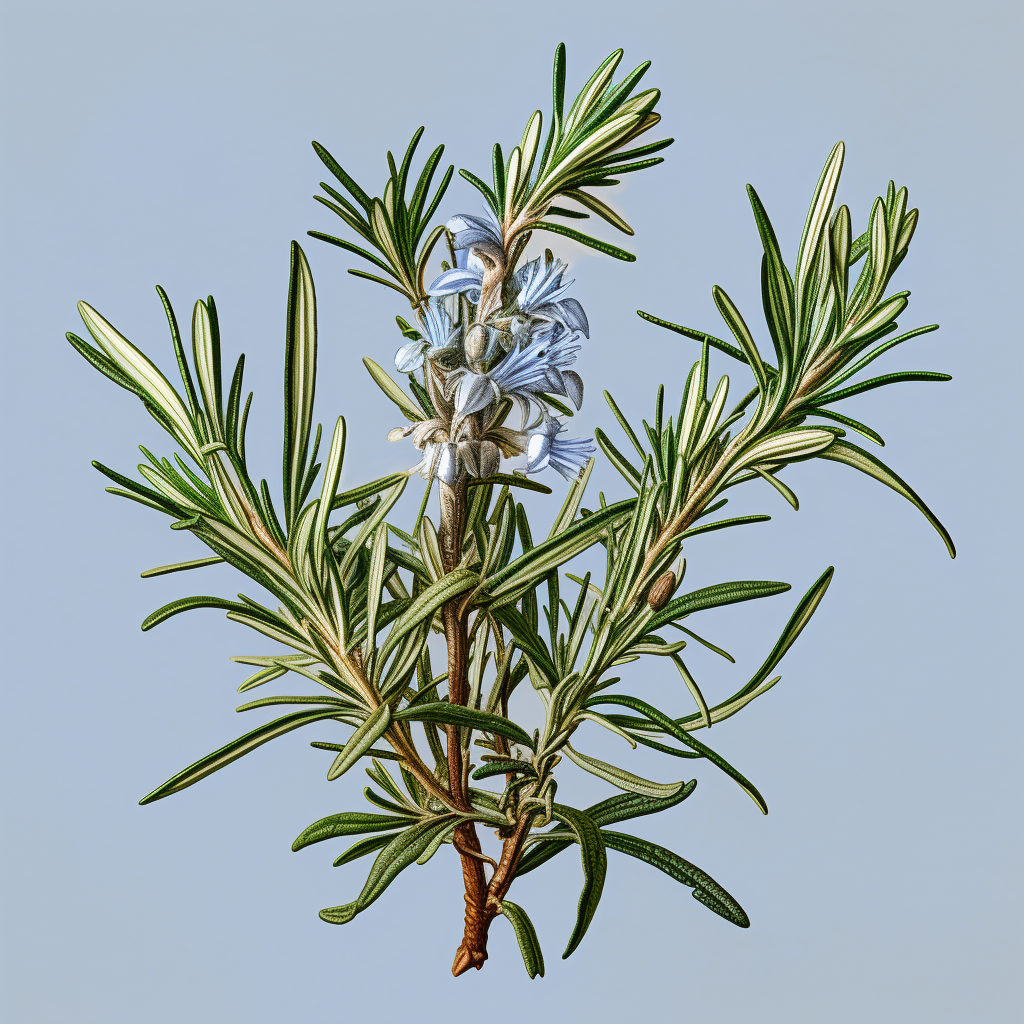Gowing Rosemary:
Rosemary is an evergreen herb that can be grown in a variety of conditions, making it a popular choice for home gardeners. It is not only used in cooking but also has medicinal properties, making it a valuable addition to any garden. In this blog post, we will discuss how to grow rosemary and some tips to help ensure a successful harvest.
Choosing the right location
Rosemary needs a sunny location with well-draining soil. It is important to choose a location that receives at least 6 hours of direct sunlight each day. If your soil is heavy and poorly draining, consider adding compost or sand to improve drainage. Rosemary also prefers slightly alkaline soil with a pH between 6.0 and 7.0. Rosemary is also a beautiful herb and can enhance your garden or landscape.

Environmental Impact
Rosemary can help to stop soil erosion if you have a small trouble spot in your yard. It is also quite fragrant, and you might notice it as you walk by, but you’ll definitely notice it if you rub your hand in the plant or water it. This is a flowering herb, so you might consider getting bees for your yard if it’s permitted in your neighborhood and you have the space for it. It will also attract native pollinators and provide a food source for them.
Planting
Rosemary can be planted from seeds or cuttings. Seeds should be started indoors in early spring and transplanted outside after the last frost. Cuttings can be taken from established plants and rooted in water or soil.
When planting, make sure to space the plants about 18-24 inches apart to allow for proper airflow and prevent overcrowding.
Watering and fertilizing
Rosemary does not like to be overwatered and prefers to be kept on the drier side. It is important to allow the soil to dry out between waterings. Overwatering can lead to root rot and other diseases.
Fertilizing is not necessary, but a light application of a balanced fertilizer in the spring can help promote healthy growth. It is important not to over-fertilize as this can lead to excessive foliage growth at the expense of flavor.
Pruning
Regular pruning is essential to keep rosemary healthy and promote new growth. Prune the plant back by about one-third in the spring after the last frost. This will help promote new growth and keep the plant compact.

Harvesting
Rosemary can be harvested at any time during the growing season. The best time to harvest is in the morning when the essential oils are the most concentrated. Cut the stems about 2-3 inches above the base of the plant, taking care not to remove too much foliage at once.
Conclusion
Growing rosemary is relatively easy and can be a rewarding addition to any garden. Choosing the right location, watering and fertilizing properly, regular pruning, and harvesting at the right time are all key to a successful harvest. By following these tips, you can enjoy fresh rosemary for use in your cooking and for its medicinal properties.
Health Benefits:
Rosemary is a fragrant herb commonly used in cooking and as a natural remedy for various ailments. It is an excellent source of antioxidants and anti-inflammatory compounds, making it a valuable addition to any healthy diet. In this blog post, we will discuss some of the health benefits of rosemary and how it can improve your overall wellbeing.
Anti-inflammatory properties
Rosemary contains compounds such as rosmarinic acid and carnosol that have anti-inflammatory properties. These compounds have been found to reduce inflammation in the body, which can help alleviate pain associated with conditions such as arthritis and improve overall immune function.
Antioxidant properties
Rosemary is also an excellent source of antioxidants such as carnosic acid and caffeic acid. These antioxidants help protect the body from oxidative stress, which can cause cell damage and lead to various diseases such as cancer, Alzheimer’s, and heart disease.
Improves digestion
Rosemary has been traditionally used as a natural remedy for digestive issues. It helps stimulate the production of bile, which is necessary for the digestion of fats. It also has antimicrobial properties, which can help kill harmful bacteria in the gut and improve overall gut health.

Boosts cognitive function
Rosemary has been found to have a positive impact on cognitive function. The aroma of rosemary essential oil has been found to enhance memory and concentration, making it a popular choice for students and professionals. It also contains compounds that have neuroprotective properties, which can help prevent cognitive decline associated with aging. It doesn’t contain rosemary, but if you’re having cognitive or hearing issues, Cortexi may be able to help. I know I forget what I came into the room for all the time, and I need all the help I can get.
Supports liver health
Rosemary has been found to have hepatoprotective properties, meaning it helps protect the liver from damage. It also helps stimulate the production of enzymes that aid in detoxification, making it a valuable addition to any detox program.
In conclusion, Rosemary is a versatile herb that offers many health benefits. It has anti-inflammatory and antioxidant properties, improves digestion, boosts cognitive function, and supports liver health. By incorporating rosemary into your diet, you can improve your overall wellbeing and enjoy its delicious flavor in your cooking.
Conclusion
In conclusion, rosemary is a remarkable herb that offers a wide range of health benefits. Its anti-inflammatory and antioxidant properties make it a valuable addition to any healthy diet. It also helps improve digestion, boost cognitive function, and support liver health. Incorporating rosemary into your diet is a simple and delicious way to improve your overall wellbeing. So, whether you add it to your favorite dishes or enjoy it as a natural remedy, rosemary is definitely worth incorporating into your daily routine.









